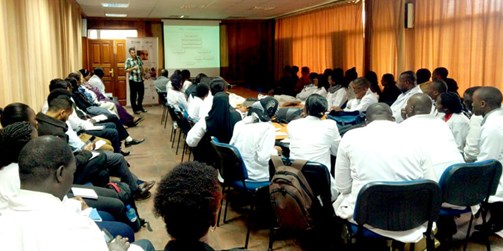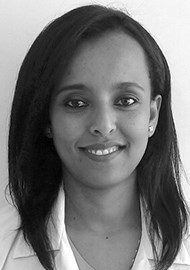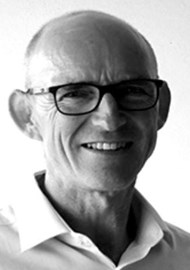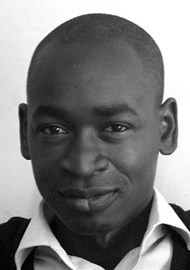In order to enhance specialist skills, particularly for South Sudan, the Juba-Bournemouth VISION 2020 LINK has been offering week-long intensive ophthalmic specialist training for the last three years, in collaboration with the University of Nairobi, the College of Ophthalmology of Eastern, Central and Southern Africa (COECSA) and the Royal College of Ophthalmologists (RCOphth).
These courses are open to ophthalmologists from the whole COECSA region and have taken place in Nairobi rather than in Juba, due to the current political climate. So far, this training has benefited around 50 ophthalmologists from all 11 COECSA member countries – Burundi, Congo, Ethiopia, Kenya, Mozambique, Malawi, South Sudan, Swaziland, Tanzania, Uganda and Zimbabwe.
These courses are contributing to the COECSA aim of providing specialist ophthalmic training. The overall aims of the training courses are:
- To enhance the skills of ophthalmologists in treating and managing patients
- To improve the quality of teaching and training in COECSA institutions through adapting and delivering part of the Royal College of Ophthalmologists’ Train the Trainers programme
- To encourage informal networking and collaboration between ophthalmologists in institutions throughout the COECSA region.
In July 2019, a team from Bournemouth, Salisbury and London joined consultant ophthalmologists at Kenyatta National Hospital and the University of Nairobi to deliver a course in advanced glaucoma surgery to 19 delegates from Kenya, Tanzania, Burundi, Ethiopia, Mozambique, Malawi, Zimbabwe and South Sudan – together with 40 local trainee ophthalmology residents.
Aims of the advanced glaucoma surgery course
- To teach practical skills in the clinical assessment and examination of glaucoma patients
- To improve skills in glaucoma management decisions
- To teach modern glaucoma surgical techniques – particularly trabeculectomy with releasable sutures – through lectures, instruction, feedback and sustained deliberate practice using simulation surgery in a digital skills lab
- To provide updates on clinical assessment and management of a broad range of glaucoma topics
- To improve teaching and training skills through a Train the Trainers workshop.
Course programme
The course consisted of lectures, digital surgery simulation skills lab and clinical experience in outpatients and theatre, with groups of delegates rotating between the different activities.

A teaching session with Heiko Philippin.
Lectures
The lecture material was available for delegates on https://cybersight.org beforehand so that more effective, higher level learning could take place – the ‘flipped classroom technique’ [1]. The lectures, delivered by international and local faculty (listed here as authors), were highly interactive with small groups feeding back their conclusions for discussion.
The lectures covered a wide syllabus ranging from anatomy and physiology to service uptake, advocacy and research. The correct use of clinical tools, particularly gonioscopy, was discussed in detail with a strong emphasis on the importance of correct diagnosis in order to inform patient-centred management. Medical, laser and surgical management options were compared and contrasted. The ‘Moorfields Safer Surgery System’ [2] for trabeculectomy was described step-by-step to inform the practical skills lab sessions. The speakers used their extensive experience of treating glaucoma in Africa to share valuable insights into effective service delivery in high volume, resource poor environments.


Theatre training underway.
Clinical teaching in clinic and theatre
During the week, every delegate spent two sessions in both clinic and theatre. The University of Nairobi resident ophthalmologists in training played a vital role in the clerking and presentation of clinic patients. The delegates then practised their clinical examination and diagnostic skills using their own gonioscope kindly donated by New World Medical.
The trainers facilitated highly informative discussions on the diagnosis of glaucoma sub-type and treatment options, taking into account the ophthalmic and systemic clinical findings, along with the cultural and economic circumstances. The importance of clinical staging and assessment of progression risk was emphasised. Another helpful aspect of the clinic sessions was the postoperative evaluation of trabeculectomy and combined surgery patients, informing discussions on surgical complications and management of complications.
In theatre a total of 14 operations were carried out by the faculty. These included five trabeculectomies, four combined small incision cataract surgery (SICS) and trabeculectomy, two Ahmed valve insertions, one tenonectomy tube revision, one bleb needling and one SICS. All the delegates had the opportunity to observe the surgery directly or via a monitor screen. The surgeons explained each step during the live surgery, encouraging questions and discussion. Observation of the procedure they had learnt in the skills lab in real life was invaluable experience for the delegates and reinforced their learning. Intraoperative management of complications was also discussed.
Train the Trainers workshop
Highlights from the ‘Train the Trainers’ (TTT) course developed by Melanie Corbett of the Royal College of Ophthalmologists were delivered as an optional session. Ben Parkin facilitated interactive discussion of material from the TTT course for the delegates, all of whom reported finding this workshop valuable and enjoyable.

Will Dean with delegates in the digital surgical skills lab.
Simulation surgery
Will Dean is completing a PhD in surgical education in Eastern and Southern Africa, funded by the British Council for the Prevention of Blindness.
A new digital surgical skills lab, with Carl Zeiss Stemi 305 microscopes, was used for this course. One of the microscopes was loaned from the Royal College of Ophthalmologists and one was donated by the Juba-Bournemouth VISION 2020 LINK. Surgical equipment was kindly donated by Altomed and New World Medical and three iPads by the Royal Bournemouth Hospital.
The process developed by Will Dean for advanced simulation training in trabeculectomy surgery involves deconstructing the procedure into individual steps for sustained deliberate practice. Foam was used for suture practice and apples provided an excellent model to practise scleral tunnelling for flap creation, before the procedure was carried out in its entirety on advanced trabeculectomy model eyes (simulatedocularsurgery.com). A relaxed atmosphere was created through humour and regular breaks for sweets and snacks, as anxiety strongly inhibits learning.
Videos of the surgery were recorded on iPads through a local wireless network and scored using the ophthalmic simulated surgery competency assessment rubric (OSSCAR) for trabeculectomy. Delegates’ scores for trabeculectomy carried out before and after completion of training were compared.


Ben Parkin with delegates in the skills lab.
Collaboration
An informal network has been established between the trainers and delegates to provide specialist support in the management of difficult clinical issues. Tools to help audit surgical outcomes have already been shared.
Learning assessment
Scores for a glaucoma-specific multiple-choice quiz carried out at the beginning and end of the course improved by 22%. Even more impressive were the final OSSCAR scores at a mean of 92%, an increase of 36% from scores at the start of the week. Delegates now appreciate the importance of auditing their individual surgical outcomes and outcome data will be collated 12 months following the course.
Course feedback
Feedback was very encouraging. One hundred percent of participants rated the course extremely relevant and were extremely likely to recommend participation in future courses to others. In addition, 94% of delegates committed to specific actions following the course, with a date for completion.
Comments from delegates following the course:
“The course is a short duration and you are exposed to a lot of skills training, and at the end, you feel competent to perform trabeculectomy and also to manage glaucoma patients, not only the surgery part but also the knowledge part of it. The faculty were very competent, and they have a lot of experience so for sure from now onwards I will be confident about doing trabeculectomy in patients with glaucoma. The teaching was high quality, well organised and easy to understand. The lectures were available earlier on from cybersite.org so you knew what to expect and if you had some questions you could ask. The theatre was good – clean and well organised – and the staff were available. In summary, it’s a super duper nice course and it was very practical.”
Frank Sandi, Dodoma, Tanzania.
“The course was excellent, and I learnt a lot of skills especially making the right diagnosis and proceeding with trabeculectomy. Hopefully, I will start doing trabeculectomy on my glaucoma patients. In terms of the clinic and theatre, the clinic was good and we learnt lots of skills in gonioscopy and evaluating patients and challenging cases. It would be better if we had more time in the theatre. It was a fantastic course and should be kept for other trainees. In summary, I learnt lots of skills in a short period of time.”
Matyas Tilahun, Gondar, Ethiopia.
“The course has been very helpful. Trabeculectomy is a bit difficult for me because of all the complications; I used to resist doing trabeculectomy. The course taught about the releasable sutures and complications and has given me a confidence boost and now I am ready to tackle more trabeculectomies. There were several complicated cases and it was interesting going through the evaluation of the patient and coming up with a diagnosis and plan. In summary, it was a great experience and next time if we can do more laser treatment and valve surgery, it would push this course to the next level.”
Irene Makite, Bomet, Kenya.
“The course has been great, particularly because we had a chance to go through the steps of trabeculectomy one at a time repeatedly and I could see I was improving each time. It improved my level of confidence in doing trabeculectomy and it offers a unique chance to do that in a stress-free environment because we are operating on non-living tissue and not on a human being. I have learnt things that I will incorporate in my practice. In summary, it has been rewarding and I am hoping to cascade this to the residents back home.”
Shaffi Mdala, Blantyre, Malawi.
Summary
Through the Juba-Bournemouth VISION 2020 LINK, in collaboration with the COECSA-RCOphth LINK and the University of Nairobi, this glaucoma subspecialty training course has offered a great opportunity for training using multiple techniques and training methods. Although the course was of a short duration, delegates developed confidence in the clinical examination, investigation, diagnosis and management decision-making for glaucoma patients. All delegates achieved objective competency in trabeculectomy surgery that will significantly help them in achieving proficiency on their own patients in the future.
References
1. Bergmann J, Sams A. How the Flipped Classroom Is Radically Transforming Learning. The Daily Riff 2011.
http://www.thedailyriff.com/
articles/how-the-flipped-classroom
-is-radically-transforming-learning-536.php
2. Dhingra S, Khaw PT. The Moorfields Safer Surgery System. Middle East Afr J Ophthalmol 2009;16(3):112-5.
https://www.ncbi.nlm.nih.gov/
pmc/articles/PMC2813606/
(Links last accessed August 2019)
Thanks to:
Will Dean, Karinya Lewis, Fatima Kyari, Heiko Philippin, Sheila Marco, Faith Masila, Daniel Kiago, Helen Roberts, Josiah Onyango
COMMENTS ARE WELCOME













